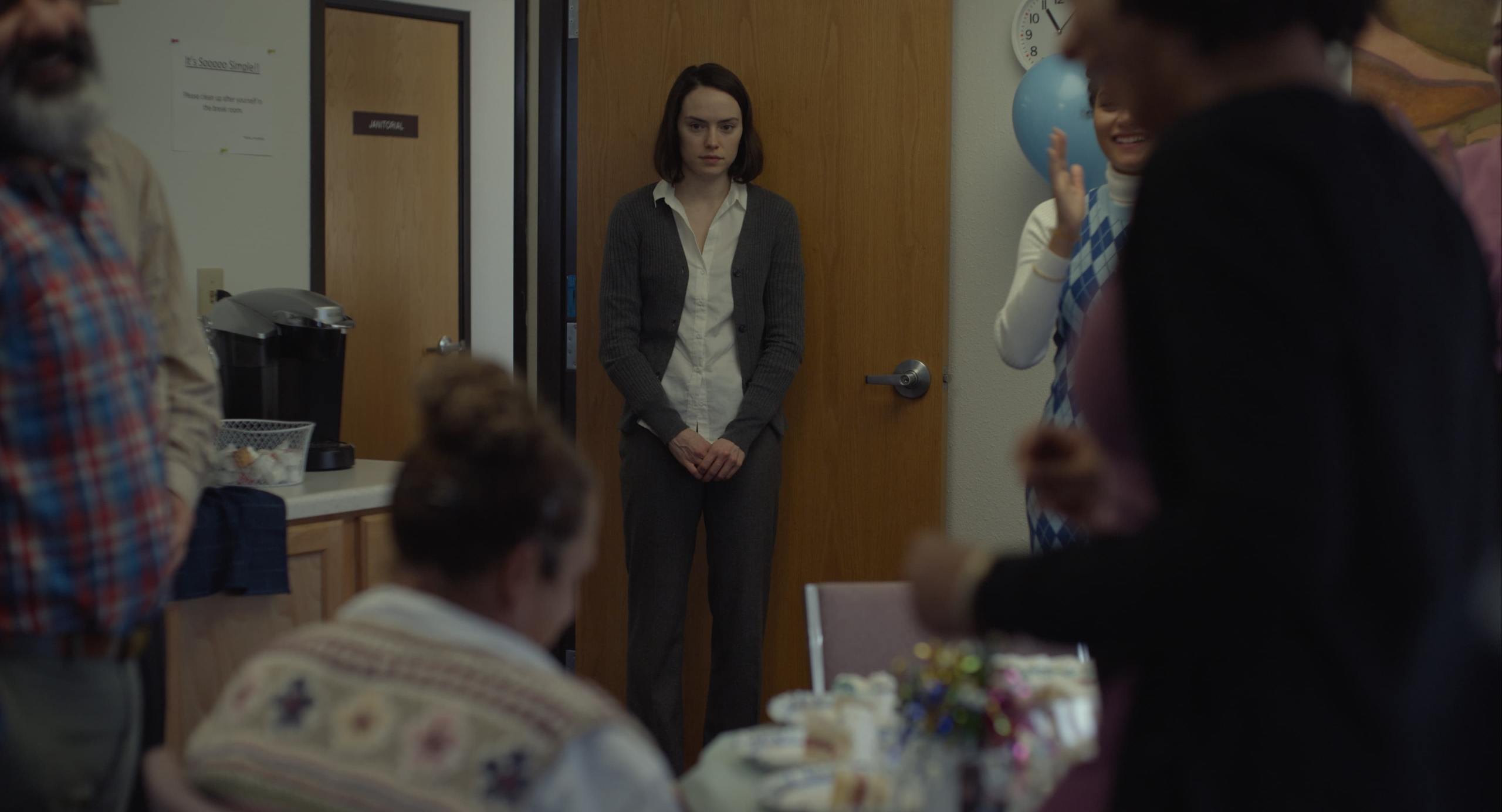Sometimes I Think About Dying – Film Review
Published March 18, 2024

Sometimes I Think About Dying is an introspective exploration into the quiet recesses of loneliness and the unexpected, fragile connections that bring color into a monochromatic life. Directed by Rachel Lambert, the film is a thoughtful adaptation of the 2013 play Killers by Kevin Armento and draws inspiration from a similarly titled 2019 short film co-written and directed by Stefanie Abel Horowitz. This romantic comedy-drama, crafted with a unique blend of poignant melancholy and subtle humor, strikes a delicate balance that aims to capture the essence of human isolation and the understated power of companionship. Daisy Ridley stars as Fran, embodying the character’s introverted nature with a performance that radiates depth and vulnerability, albeit inconsistently across the film’s duration.
The premise of the film is quietly compelling, with Fran leading a life marked by an overwhelming sense of solitude and a peculiar preoccupation with thoughts of death. Ridley’s portrayal of Fran’s interior world is nuanced, drawing viewers into her solitary existence with an earnestness that feels both profound and relatable. However, where the film falters is in its pacing and occasional predictability, treading familiar ground without offering substantial new insight into the theme of loneliness in the modern world.
The arrival of Robert, played with a gentle awkwardness by Dave Merheje, serves as the catalyst for the narrative’s exploration of human connection. The chemistry between Ridley and Merheje is notable, although their interactions at times feel constrained by a script that struggles to fully flesh out their characters beyond the surface level. Despite this, there are moments of genuine warmth and tenderness between Fran and Robert that highlight the potential for deep connection even amongst the most isolated of souls.
Supporting performances by Parvesh Cheena, Meg Stalter, and Brittany O’Grady add vibrancy to the film, offering a counterbalance to Fran’s introspection. Cheena’s Garrett and Stalter’s Isobel, in particular, bring a necessary levity to the narrative, while O’Grady’s Sophie offers a nuanced reflection on the various ways people navigate their insecurities and desires for intimacy.
The film’s cinematography and use of visual metaphor deserve commendation. Scenes are often bathed in a muted palette, reflecting Fran’s internal state, while occasional bursts of color signify moments of emotional awakening. These visual choices enhance the narrative, creating a sensory representation of Fran’s journey that resonates on a visceral level.
However, the screenplay, penned by Kevin Armento, Stefanie Abel Horowitz, and Katy Wright-Mead, occasionally meanders, leaving some emotional beats feeling unearned. The dialogue aims for authenticity, capturing the awkwardness of real-life interactions, but at times veers into territory that feels slightly contrived. Despite this, the script succeeds in delivering moments of poignant reflection on the nature of existence, threading dark humor throughout in a way that feels both refreshing and deeply human.
Where Sometimes I Think About Dying shines is in its quieter moments—scenes where little is said but much is conveyed. Lambert directs with a subtlety that emphasizes the unspoken, creating spaces for the actors to bring depth to their characters through gestures and glances rather than through dialogue alone. This restraint is commendable, although it leads to moments where the film’s narrative momentum stalls, struggling to engage the viewer fully.
The film’s exploration of themes such as mortality, the mundane, and the fear of intimacy is ambitious. It endeavors to peel back the layers of its protagonist’s psyche, revealing the commonality of her fears and desires in a way that feels both personal and universal. However, the film doesn’t always manage to sustain this delicate balance, occasionally veering into overly introspective territory that detracts from its emotional impact.
In its essence, Sometimes I Think About Dying is a film about the beauty of life’s small moments and the significance of human connection. It is a reminder that amidst the solitude and sameness of everyday existence, there exists the potential for transformation through seemingly insignificant interactions. While the film sometimes struggles to maintain its narrative coherence and emotional depth, it remains a commendable attempt to depict the complexities of human connection in a nuanced and thoughtful manner.
Sometimes I Think About Dying is a film with heart and ambition. Despite its shortcomings, it provides a contemplative look at the lives we lead in quiet desperation and the fleeting moments that can imbue those lives with meaning. Ridley’s performance as Fran anchors the film, offering a window into the soul of a character whose journey reflects our collective yearning for connection. While it may not resonate with all viewers, for those attuned to its quieter frequency, it offers a poignant, if not entirely satisfying, reflection on the beauty and tragedy of the human condition.
